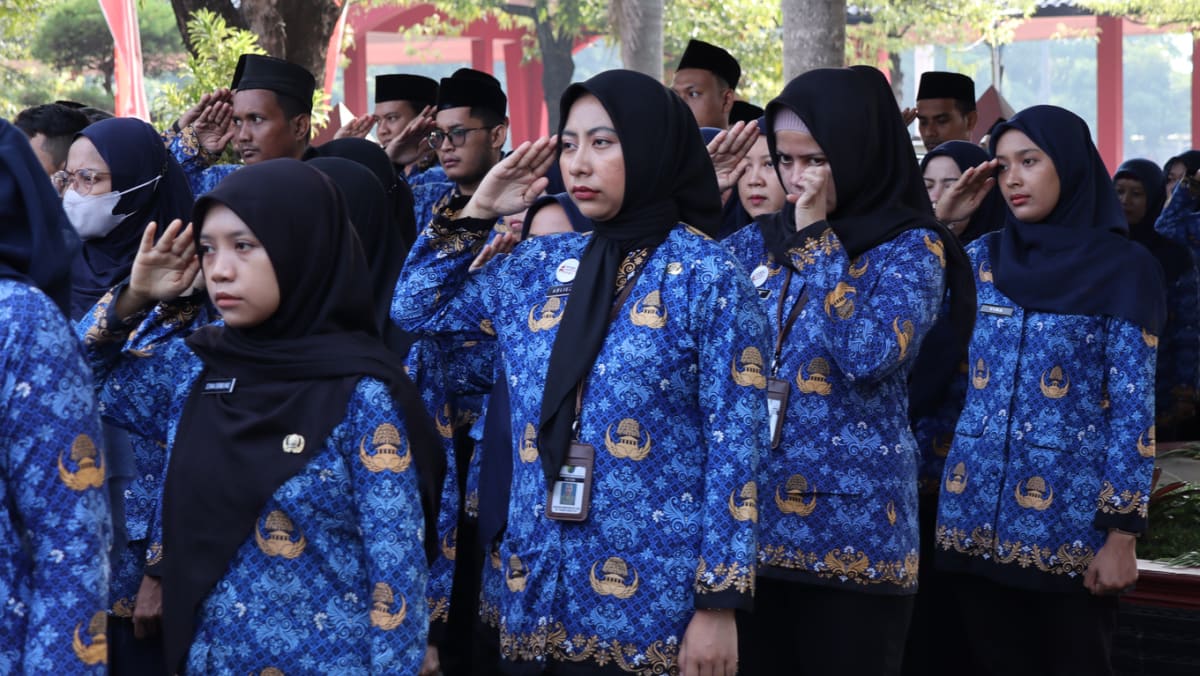Asia
‘We have to chip in for drinking water’: Indonesia’s civil servants bear the brunt of Prabowo’s budget cuts

Indonesia’s Budget Cuts: Impact and Implications for Civil Servants and Public Programs
1. Introduction to the Budget Cuts and Their Immediate Effects
Indonesia has recently implemented significant budget cuts across various government ministries and agencies, with the aim of optimizing state funds and reallocating resources to key initiatives. The directive, issued by President Prabowo Subianto on January 23, has led to a 256 trillion rupiah (US$15.76 billion) reduction in the budgets of ministries and state agencies, as well as a 50 trillion rupiah reduction in central government transfers to regional administrations. These cuts represent approximately 8.5% of Indonesia’s proposed 2025 budget, which was announced in August last year. The first phase of cuts aims to save a total of 306.6 trillion rupiah in state funds, while the second phase targets an additional 308 trillion rupiah in savings.
The immediate effects of these cuts are being felt by civil servants like Kardiani, a 30-year-old employee at the Ministry of Women’s Empowerment and Child Protection. Her office has restricted access to basic supplies such as drinking water and toilet paper, and measures to conserve electricity and resources have been implemented. For instance, the air conditioning in her office is turned off by 4 pm, and only one elevator is operational, with staff sometimes resorting to using the freight elevator. Kardiani and her colleagues often work late, sometimes until 6 pm or 7 pm, depending on their workload. These changes reflect the broader efforts to reduce government spending and allocate funds to priority programs.
2. The Human Impact: Civil Servants Adapt to Reduced Resources
The budget cuts have significantly altered the daily routines and working conditions of civil servants across Indonesia. At Kardiani’s office, lights in the restrooms are switched off, and the use of printers is tightly regulated. Even basic necessities like drinking water are no longer fully provided, prompting employees to contribute money to purchase these essentials. Kardiani, who requested anonymity as she is not authorized to speak to the media, described the situation as difficult but manageable. "We even have to pitch in to buy drinking water," she told CNA. These small but significant changes underscore the growing challenges faced by government employees as they adapt to the new fiscal realities.
The restrictions on resources are not limited to office supplies. The Ministry of Finance, under the leadership of Sri Mulyani Indrawati, has implemented spending cuts across 16 budget categories, including reductions in official travel, consultancy services, ceremonial events, meetings, seminars, and office supplies. These measures have affected most of Indonesia’s 48 ministries, forcing employees to find creative ways to cope with reduced resources. For example, Kardiani and her colleagues often stay late to complete their work, with only one elevator available for use. In some cases, they even rely on the freight elevator, which is typically used for transporting goods rather than people.
The budget cuts have also led to a shift in workplace culture, with employees becoming more conscious of their resource usage. For instance, the air conditioning in Kardiani’s office is turned off by 4 pm, forcing employees to work in less comfortable conditions during the late afternoon hours. These changes, while seemingly minor, have a cumulative impact on employee morale and productivity. As the government continues to tighten its belt, civil servants are being asked to make sacrifices in their daily routines to support the broader fiscal goals.
3. The Rationale Behind the Budget Cuts: Reallocating Funds for Key Initiatives
The rationale behind the budget cuts is not explicitly stated in President Prabowo Subianto’s directive, but reports suggest that the savings will be channelled into two key initiatives: the free nutritious meals program and the newly established Danantara sovereign wealth fund. Speaking at the 17th anniversary celebration of his Great Indonesia Movement (Gerindra) party on February 15, President Subianto emphasized the importance of ensuring that Indonesians, especially children, do not go hungry. "Our people, our children, must not go hungry," he said, as reported by news outlet Kompas.
The free nutritious meals initiative, a flagship program of the Subianto administration, aims to address food insecurity and malnutrition across the country. By reallocating funds from other budget categories, the government hopes to provide meals to those in need, particularly in underserved communities. Additionally, the savings from the budget cuts will also support the launch of Danantara, Indonesia’s new sovereign wealth fund, which is set to debut on February 24. The fund is expected to play a key role in driving economic growth and development by investing in strategic sectors.
By reallocating funds from non-essential expenses to these priority programs, the government aims to create a more equitable and sustainable future for Indonesians. The budget cuts reflect a broader strategy to prioritize Spending on initiatives that directly benefit the public, while reducing unnecessary expenditures in other areas. As President Subianto stated, the total savings from the cuts amount to 750 trillion rupiah, which will be utilized to fund these and other key initiatives.
4. The Financial Strategy: Saving and Reallocating Funds
The budget cuts are part of a multi-phase strategy to optimize state funds and redirects resources to high-priority areas. In the first phase, the government aims to save 306.6 trillion rupiah, while the second phase targets an additional 308 trillion rupiah in savings. Out of the second phase savings, 58 trillion rupiah will be reallocated among ministries and agencies to support essential programs. Additionally, the government plans to utilize 200 trillion rupiah of the 300 trillion rupiah in dividends expected from state-owned enterprises this year.
These measures are designed to create a significant pool of funds that can be used to finance development projects and social programs. The Ministry of Finance has taken a proactive











